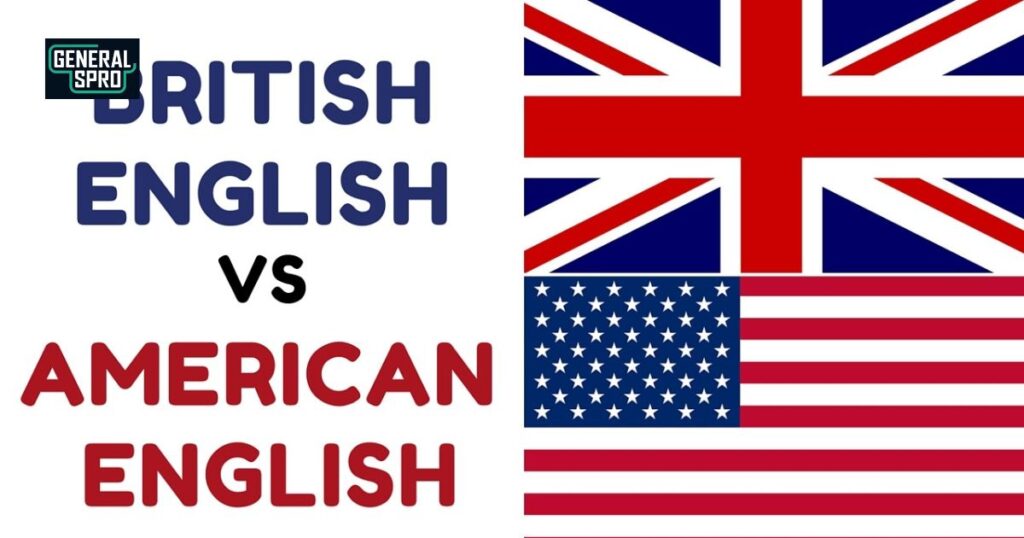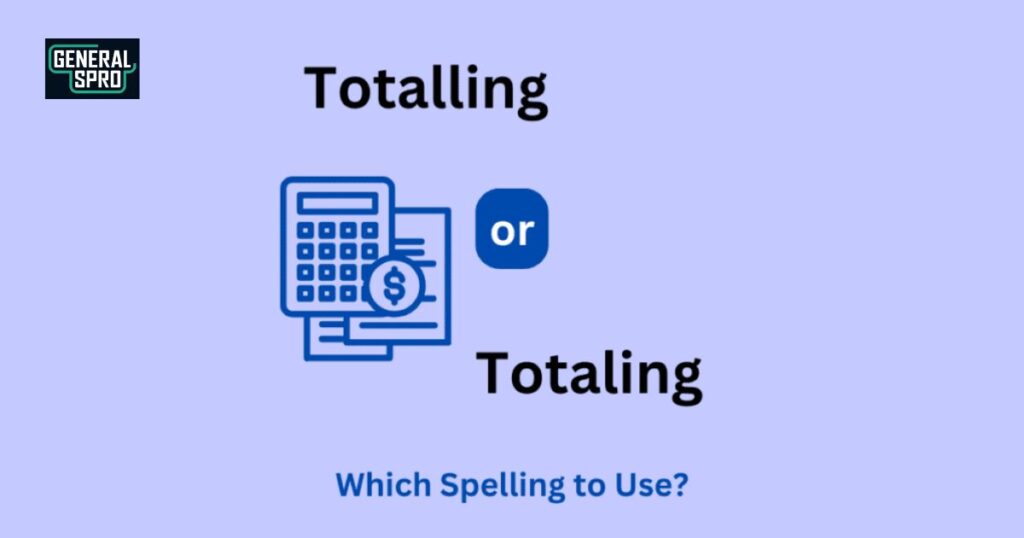Whether drafting financial reports or writing business correspondence, knowing the correct spelling of commonly used words is crucial.
One frequent source of confusion is the spelling variation between “totalling” and “totalling.” Let’s dive deep into this nuanced aspect of English spelling conventions and uncover which version you should use.
Totalling vs Totaling: The Key Difference

The variation between “totalling” and “totalling” stems from fundamental differences between British and American English spelling conventions.
In British English, the final consonant is typically doubled when adding suffixes to words ending in a single vowel followed by a single consonant. American English, however, generally maintains the single consonant.
The Correct Spelling of Totalling or Totaling
Both spellings are technically correct, but their usage depends entirely on your geographical location and audience. In the United States, “totalling” is the standard spelling.
For British English speakers and writers, “totalling” is accepted. This distinction follows the same pattern as similar words like travelling/travelling, levelling/levelling, and modelling/modelling.
Example Scenario: Email to a British Client
When corresponding with British clients or organizations, using “totalling” demonstrates attention to detail and cultural awareness. Consider this example:
“I am writing regarding the invoice totalling £5,000 for consulting services rendered during the previous quarter.”
Example Scenario: Email to an American Client
For American recipients, “totalling” is more appropriate:
“The finance department has approved the expenditure report totalling $75,000t.”
Regional English Differences: British vs American English
The spelling divergence between British and American English extends far beyond this single word. These variations emerged through historical developments and deliberate standardization efforts.
The Influence of Noah Webster
Noah Webster, the American lexicographer, deliberately introduced spelling reforms in the early 19th century to distinguish American English and simplify spelling patterns.
His influence led to many spelling differences today, including the preference for single consonants in words like “totalling.”
Synonyms of Totalling and Totaling
For variety in professional writing, consider these alternatives:
- Aggregating
- Summing up
- Calculating
- Computing
- Tallying
Example Scenario: Accounting Report
In financial documentation, consistency is paramount. Here’s a practical application:
“The fiscal year expenses, totalling $2.3 million, represent a 15% increase from the previous year.”
Usage in British vs American English

The following table illustrates common spelling variations between British and American English:
British English American English
Totalling Totaling
Travelling Traveling
Labelling Labeling
Modelling Modeling
Signalling Signaling
British Usage: Totalling in Accounting and Finance
In British financial sectors, “totalling” appears consistently in formal documentation, annual reports, and professional correspondence. This spelling aligns with other British English conventions for double consonants.
American Usage: Totaling in Everyday Speech
American business communications and casual writing consistently employ “totalling.” This reflects the broader American preference for simplified spelling patterns.
Accounting and Calculating Totals
Maintaining consistency with regional standards is essential when preparing financial documents. This extends beyond spelling to formatting and presentation conventions.
Example Scenario: Accountant’s Report
“The quarterly revenue, totalling $3.4 million, demonstrates strong growth across all business segments.”
Spelling Conventions in English
Understanding these key spelling principles helps maintain consistency:
- Words ending in ‘L’:
- British English typically doubles the ‘L’
- American English usually maintains a single ‘L’
- Exception cases:
- Both varieties double the ‘L’ when the stress falls on the final syllable
- Compound words follow their own rules
British vs American Spelling Differences
The distinction between “totalling” and “totalling” represents one example of systematic spelling differences between British and American English. These variations reflect deeper linguistic patterns and historical developments in English language standardization.
Digital Age Impact on Spelling Standards
The rise of digital communication has significantly influenced how we approach spelling variations. With global connectivity, professionals increasingly encounter both British and American English in their daily communications.
Email clients, word processors, and digital tools often default to one spelling standard, requiring users to adjust their settings consciously based on their target audience.
Industry-Specific Style Guides and Preferences
Different industries have developed their conventions regarding spelling preferences. For instance, academic publishers often favour British spelling, while tech companies frequently default to American conventions.
Understanding these nuances helps professionals navigate cross-industry communication effectively.
The Role of Educational Systems in Spelling Standards

Educational institutions worldwide play a crucial role in establishing and maintaining spelling standards. Schools in Commonwealth nations typically teach British spelling conventions, while American institutions naturally promote American spelling patterns. This early exposure significantly influences professional writing habits.
Global Business Communication Challenges
International businesses face unique challenges when standardizing their communication protocols.
Many multinational corporations establish internal style guides that specify whether to use British or American spelling conventions, ensuring consistency across all corporate communications.
The Evolution of Spelling in Modern English
Historical records show fascinating patterns in how English spelling has evolved over the centuries.
What we now consider “correct” spelling often reflects political and cultural influences rather than purely linguistic developments. This historical context helps explain current variations.
Impact of International Trade on Spelling Conventions
Global commerce has influenced spelling preferences in unexpected ways. Countries with strong trading relationships often adopt similar spelling conventions, creating regional patterns that don’t strictly follow traditional British-American divisions.
Legal and Contract Writing Considerations
Legal documents require particular attention to spelling consistency. Many law firms maintain specific guidelines about whether to use British or American spelling, especially in international contracts where precision is paramount.
Digital Content Creation and SEO Implications
Search engine optimization considerations have added another layer to spelling choices. Content creators must often account for spelling variations in their keyword strategy to maximize reach across English-speaking markets.
The Influence of Social Media on Spelling Standards
Social media platforms have created new dynamics in spelling preferences, often blending British and American conventions. This informal mixing of standards is gradually influencing formal writing contexts.
Professional Certification and Documentation Standards
Various professional certifications and international standards organizations have spelling preferences, which professionals must navigate when preparing documentation or certification materials.
Cross-Cultural Communication Protocols
Organizations dealing with international clients often develop specific protocols for managing spelling variations in their communications, ensuring clarity and professionalism across cultural boundaries.
Technological Solutions for Spelling Management
Modern software solutions offer increasingly sophisticated tools for managing spelling variations, including automatic detection and conversion between British and American standards.
Future Trends in English Spelling Conventions

Linguistic experts predict continuing evolution in spelling standards, potentially leading to new hybrid forms that accommodate British and American conventions in professional contexts.
The Role of Style Guides in Professional Writing
Professional organizations rely heavily on style guides to maintain consistency in their communications. Understanding how these guides approach spelling variations is crucial for experienced writers.
Impact on International Education and Testing
International educational institutions and testing organizations must carefully consider spelling variations when developing materials and assessing English language proficiency, often accepting both British and American spellings as correct.
FAQ’s
Is “totalling” incorrect in American English?
A: No, “totalling” isn’t incorrect, but it’s not the preferred spelling in American English. American convention favours “totalling” with a single ‘l’.
Does Microsoft Word accept both spellings?
Yes, Microsoft Word recognizes both “totalling” and “totalling” as correct, but it will flag one as incorrect based on your selected language settings (US or UK English).
Should I use “totalling” or “totalling” in international business documents?
Choose the spelling based on your primary audience. For US-based business, use “totalling”; for UK or Commonwealth countries, use “totalling”.
Does the spelling change affect pronunciation?
No, “totalling” and “totalling” are pronounced identically, regardless of the spelling variation.
Are there any exceptions to the double-L rule in British English?
Generally no; British English consistently doubles the ‘l’ when adding suffixes to words ending in ‘l’, as in “totalling,” “travelling,” and “levelling.”
Do other English-speaking countries follow British or American spelling?
Most Commonwealth countries (Canada, Australia, New Zealand) typically follow British spelling conventions, including “totalling.”
Can mixing British and American spellings in the same document be considered incorrect?
While not technically incorrect, maintaining consistency within a single document is considered best practice in professional writing.
Do style guides have specific recommendations about which spelling to use?
Yes, most professional style guides specify either American or British spelling conventions. Follow the guide appropriate for your audience or organization.
Conclusion
The choice between “totalling” and “totalling” depends entirely on your audience and context. For American readers, use “totalling.” For British audiences, opt for “totalling.” Consistency within your document is crucial, as is awareness of your target audience’s expectations.








